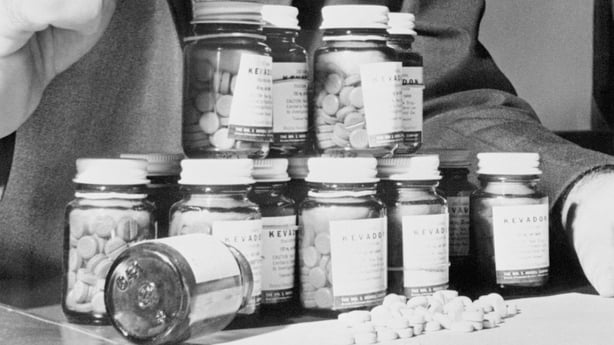The Irish Thalidomide Association (ITA) has appealed to the Government to re-engage in talks regarding a State apology and an appropriate compensation package to include provisions for medical expenses.
Reacting to a statement today by Minister for Health Stephen Donnelly that he would "love to see" a resumption of talks with thalidomide survivors, the ITA said on social media: "Help get us back in the room. It's been 1 year since last engagement. An end to this saga now."
Earlier, Minister Donnelly told reporters that he "firmly" believed that there needed to be agreement on the matter.
A process was established in 2022, chaired by Kieran Mulvey, which sought to address the concerns of survivors.
Survivors want a State apology and an appropriate compensation package to include provisions for medical expenses.
Mr Donnelly said it was a "great disappointment" for him that the talks broke down, but added that the Government was willing to re-engage.
Thalidomide survivor Finola Cassidy, who is also spokesperson for the Irish Thalidomide Association, said that the group wrote a joint letter to the Taoiseach and Tánaiste earlier this month requesting an "urgent resumption of talks to bring an end to the more than 60-year thalidomide saga".

Thalidomide is a chemical ingredient that was sold in Ireland from 1957 to alleviate morning sickness.
It was withdrawn internationally in 1961 after it was found to cause major birth defects.
Babies were born with shortened or no limbs and with painful damage to nerves, organs, hearing and eyesight.
There are around 40 survivors in Ireland and 4,000 survivors worldwide.
Last December, the Australian government issued a State apology to victims of thalidomide.
Minister Donnelly said: "I have tried over several years now to provide bespoke healthcare services to all of the survivors of thalidomide.
"Some of them have taken them up, others haven't but certainly I can assure you right across Government there is a real appetite and willingness to engage and come up with an answer that works for survivors."
Additional reporting Paul Cunningham







